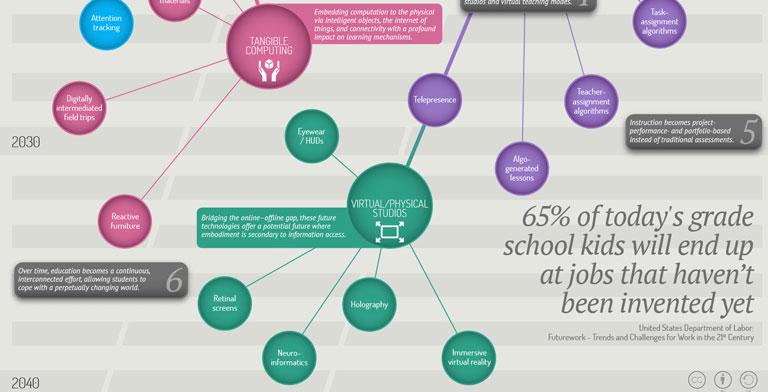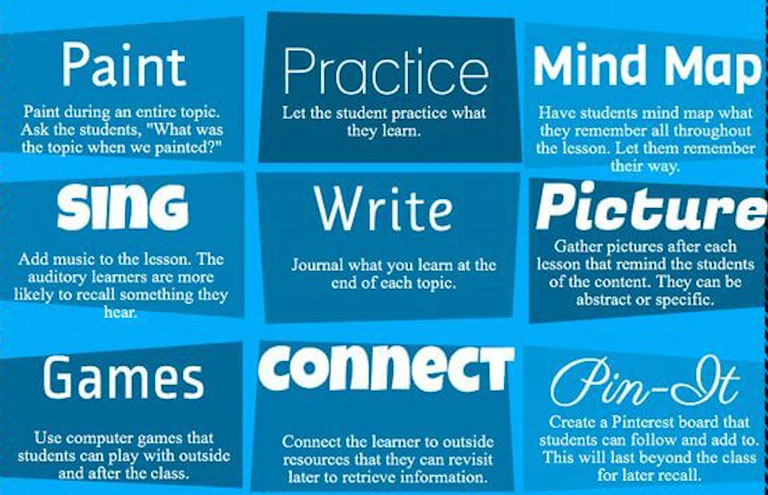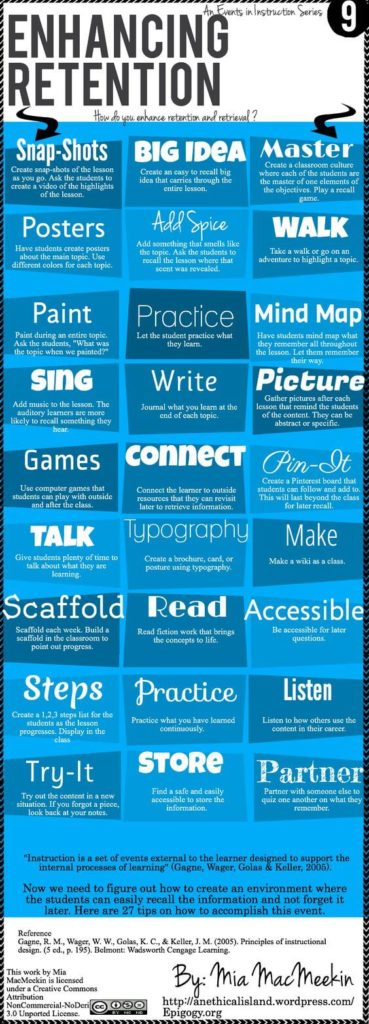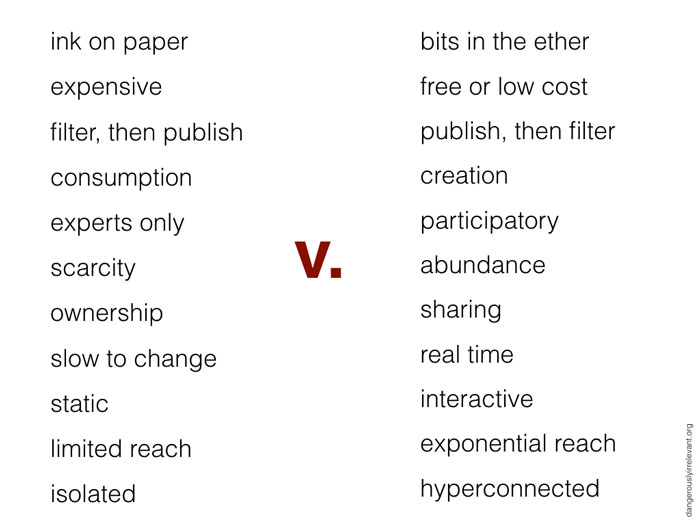by Michell Zappa
“Education lies at a peculiar crossroad in society. On one hand it has the responsibility of anticipating real-life skills by preparing us for an increasingly complex world – but education methodologies can only be formalized after practices have been defined. This dichotomy is particularly aggravated when it comes to technology, where fast-paced innovation and perpetual change is the only constant.
This visualization attempts to organize a series of emerging technologies that are likely to influence education in the upcoming decades. Despite its inherently speculative nature, the driving trends behind the technologies can already be observed, meaning it’s a matter of time before these scenarios start panning out in learning environments around the world.”
Envisioning The 6 Domains of Future Technology In Education
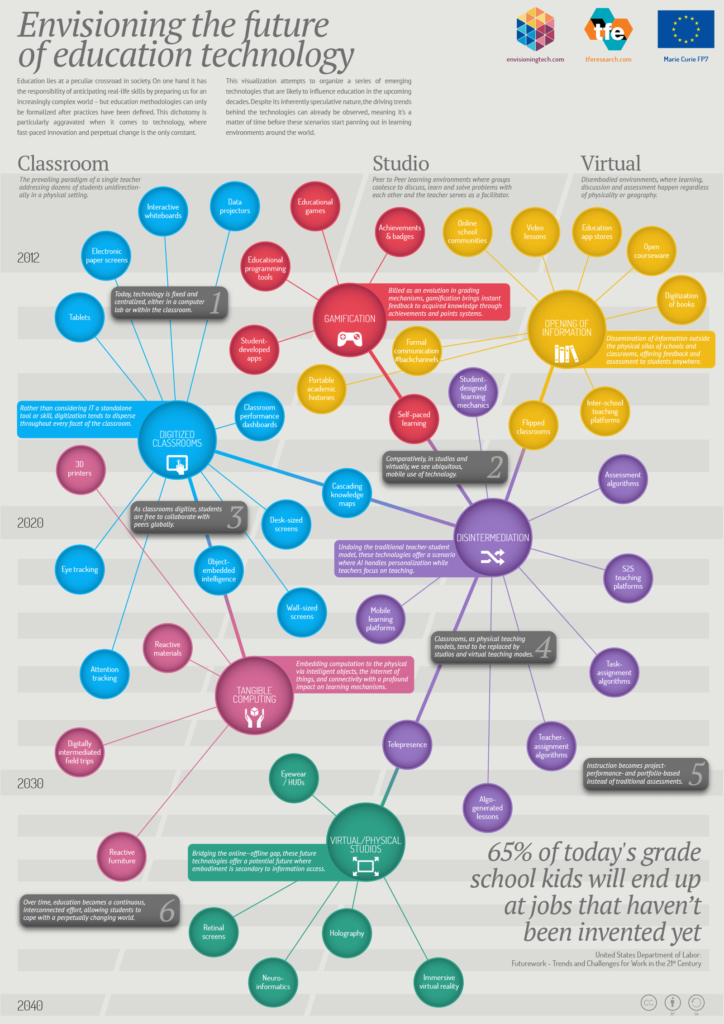
6 Domains Of Education Technology
1. Digitized Classrooms: Rather than considering IT a standalone tool or skill, digitization tends to disperse throughout every facet of the classroom.
Examples: tablets, electronic screens, interactive whiteboards, data projectors,
2. Tangible Computing: Embedding computation to the physical via intelligent objects, the internet of things, and connectivity with a profound impact on learning mechanisms.
Examples: reactive materials, reactive furniture, 3D printers, digitally intermediated field trips
3. Gamification: Billed as an evolution in grading mechanisms, gamification brings instant feedback to acquired knowledge through achievements and points systems.
Examples: student-developed apps, educational games, educational programming tools, achievement badges, self-paced learning
4. Virtual/Physical Studios: Bridging the online-offline gap, these future technologies offer a potential future where embodiment is secondary to information access.
Examples: eyewear/HUDs, retinal screens, holography, neuroinformatics, immersive virtual reality
5. Disintermediation: Undoing the traditional teacher-student model, these technologies offer a scenario where AI handles personalization while teachers focus on teaching
Examples: telepresence, algo-generated lessons, mobile learning platforms, task-assignment algorithms, S2S teaching platforms, assessment algorithms, student-designed learning mechanics
6. Opening of Information: Dissemination of information outside the physical silos of schools and classrooms, offering feedback and assessment to students anywhere.
Examples: portable academic histories, flipped classrooms, inter-school teaching platforms, digitization of books, open courseware, education app stores, online school communities, video lessons, formal communication backchannels
Image attribution flickr user radarcommunication; Envisioning The Future Of Technology In Education

